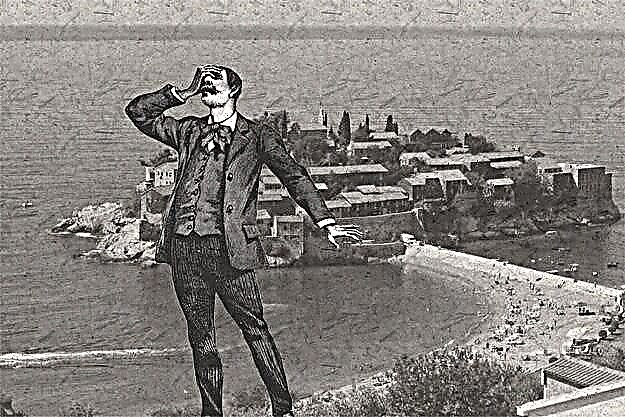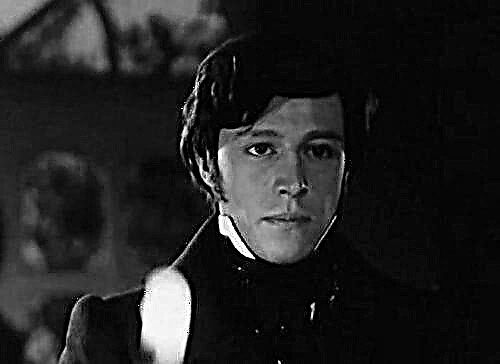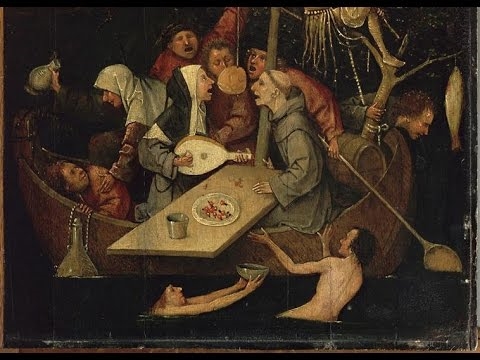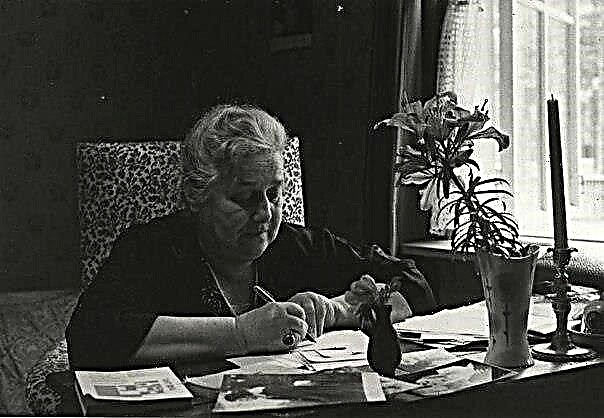The hero of the novel Lucius (is it a coincidence with the name of the author ?!) travels around Thessaly. On the way, he hears fascinating and scary stories about witchcraft charms, transformations, and other witchcraft tricks. Lucius arrives in the Thessalian city of Gipatu and stops at the house of a certain Milon, who is "full of money, terrible wealthy, but stingy and utterly familiar to everyone as a sneaky and miserable person." Throughout the ancient world, Thessaly was famous as the birthplace of magical art, and soon Lucius was convinced of this by his own sad experience.
In Milon’s house, he begins an affair with the maid Fotida, who reveals the secret of her mistress to her lover. It turns out that Pamphilas (this is the name of Milon’s wife) can, with the help of a wonderful ointment, turn into, say, an owl. Lucius passionately wants to experience this, and Fotida finally succumbs to his requests: he assists in such a risky business. But, having secretly entered the mistress’s room, she mixed up the drawers, and as a result, Lucius turns not into a bird, but into a donkey. In this guise, he remains until the very end of the novel, knowing only that for the reverse transformation he needs to taste the rose petals. But various obstacles stand in his way every time he sees another rose bush.
The newly arrived donkey becomes the property of a band of robbers (they robbed Milon’s house), who use it naturally as a pack animal: “I was rather dead than alive, from the severity of such luggage, from the steepness of a high mountain and the length of the journey.”
More than once on the verge of death, exhausted, beaten and half-starved, Lucius involuntarily takes part in raids and lives in the mountains, in the brothel brothel. There, he listens daily and nightly and remembers (turning into a donkey, the hero, fortunately, has not lost his understanding of human speech), more and more terrible stories about robber adventures. Well, for example, - the story of a powerful robber, dressed in a bear's skin and in this guise penetrated the house, chosen by his comrades for robbery.
The most famous of the novel's short stories, “Cupid and Psyche”, is a marvelous tale of the youngest and most beautiful of the three sisters: she became the lover of Cupid (Cupid, Eros) - an insidious arrowman.
Yes, Psyche was so beautiful and charming that the god of love himself loved her. Transferred by affectionate Zephyr to the fairy-tale palace, Psyche received Eros every night in her arms, caressing the divine lover and feeling that she was loved. But at the same time, beautiful Cupid remained invisible - the main condition for their love meetings ...
Psyche persuades Eros to allow her to see the sisters. And, as always happens in such tales, envious relatives beat her to disobey her husband and try to see him. And then, during the next meeting, Psyche, long consumed by curiosity, lights a lamp and, happy, happily looks at a beautiful wife sleeping next to her.
But then hot oil sprinkled from the wick of the lamp: “Feeling a burn, God jumped up and, seeing a stained and broken oath, quickly freed himself from the hugs and kisses of his unhappy wife and, without saying a word, took to the air.”
The goddess of love and beauty Venus, sensing a rival in Psyche, in every possible way pursues the chosen one of her arrow-bearing and capricious son. And with purely female passion she exclaims: “So he really loves Psyche, my rival in self-proclaimed beauty, the kidnapper of my name ?!” And then he asks two celestial women - Juno and Ceres - to “find the runaway flyer Psyche,” posing as her slave.
Meanwhile, Psyche, "moving from place to place, day and night anxiously searches for her husband, and more and more desires, if not with the caresses of her wife, then at least with servile pleas to alleviate his anger." On her thorny path, she finds herself in a distant temple of Ceres, and by hardworking humility she gains her favor. And all the same, the goddess of fertility refuses to give her refuge, for she is connected with Venus by the "bonds of ancient friendship."
She also refuses to shelter her and Juno, saying: "The laws prohibiting the patronage of fugitive strangers without the consent of their masters prevent me from doing this." And it’s good that the goddesses did not give Psyche an angry Venus.
Meanwhile, she asks Mercury to declare, so to speak, the universal search for Psyche, having announced to all people and deities its signs. But at that time Psyche herself was approaching the halls of her indomitable and beautiful mother-in-law, having decided to surrender to her voluntarily and timidly hoping for mercy and understanding.
But her hopes are in vain. Venus cruelly taunts the unfortunate daughter-in-law and even beats her. The goddess, besides everything, is already enraged by the very idea of the prospect of becoming a grandmother: she is going to prevent Psyche from giving birth to a child conceived from Amur: “Your marriage was unequal, moreover, he was married to a country estate without witnesses, without his father’s consent, he cannot be considered valid, so that an unlawful child will be born of him, if I will let you inform him at all. ”
Then Venus gives Psyche three impossible tasks (which later became “eternal plots” of world folklore). The first of them is to make out a myriad heap of rye, wheat, poppy, barley, millet, peas, lentils and beans - Psyche is helped by ants. Also, with the help of the good forces of nature and local deities, she copes with other duties.
But Cupid, meanwhile, suffered in separation from his beloved, whom he had already forgiven. He calls on his father Jupiter to resolve this “unequal marriage”. The Chief Olympian summoned all the gods and goddesses, ordered Mercury to immediately deliver Psyche to heaven, and holding out his cup with ambrosia, he said: “Accept, Psyche, become immortal. May Cupid never leave your embrace, and may this union be forever and ever! ”
And a wedding was played in heaven, at which all the gods and goddesses danced merrily, and even Venus, already warming up by that time. “So Psyche was duly transferred to the power of Cupid, and when the time came, a daughter was born to them, whom we call Pleasure.”
However, Zeus can be understood: firstly, he was not completely disinterested, because for his consent to this marriage he asked Amur to look for him on Earth another beauty for love joys. And secondly, as a man, not without taste, he understood the feelings of his son ...
This touching and tragic story Lucius heard from a drunken old woman who ran a farm in a cave of robbers. Due to the preserved ability to understand human speech, the hero turned into a donkey learned many other amazing stories, for he was almost continuously on the road, on which he came across many skilled storytellers.
After many misfortunes, constantly changing masters (mostly evil and only occasionally good), Lucius the donkey eventually flees and ends up on a secluded Aegean coast. And here, observing the birth of the moon, rising from the sea, he inspires the goddess Selena, who bears many names from different nations: “Lady of heaven! Combine with me the image of a wild four-legged, return me to the eyes of my loved ones [...] If any deity drives me with inexorable cruelty, even if death will be given to me if life is not given! ” And the royal Isis (the Egyptian name of the Selene Moon) is Lucius and indicates the path to salvation. It is no coincidence that this goddess in the ancient world has always been associated with all mysterious acts and magical transformations, rituals and mysteries, the contents of which were known only to the initiates.During the sacred procession, the priest, warned in advance by the goddess, gives the unfortunate person the opportunity to finally taste the rose petals, and in the eyes of the delighted, exalted crowd, Lucius regains his human form.
The adventure novel concludes with a chapter on religious ordinances. And this happens quite naturally and naturally (because all the time we are talking about transformations - including spiritual ones!).
Having gone through a series of sacred rites, having learned dozens of mysterious initiations, and finally having returned home, Lucius returned to the judicial activity of a lawyer. But in a higher rank than before, and with the addition of sacred duties and responsibilities.












